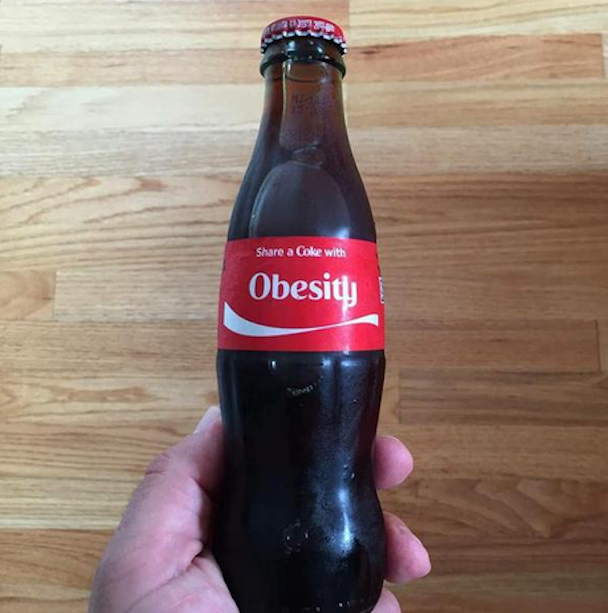Coca Cola accused of trying to ban embarrassing personalised 'Obesity' bottle
Coca Cola’s personalised bottle advertising campaign has been dealt an embarrassing blow after someone branded one of the bottles with the word ‘obesity’ and the company reacted by banning him.

The customisable Coke bottle campaign allows people to go online and complete the sentence ‘Share a Coke with…’ using a name of their choice.
Alex Bogusky, the co-founder of ad agency Crispin Porter + Bogusky, tweeted a picture of one of the Coke bottles with the word ‘obesity’ branded across it, claiming that a friend of his created it and that Coke had “shut him down” in response.
Happiness is ... truth on a Coke bottle. My buddy made this on http://t.co/F0EmgXnqsT but now they shut him down. : ( pic.twitter.com/Q1x56WSJEE
— Alex Bogusky (@bogusky) September 4, 2015
Coke state on the Share a Coke website’s terms and conditions that orders must not contain any "objectionable" material which it says includes words which are deemed libelous, defamatory, pornographic, sexually explicit, unlawful, racially or ethnically offensive. It also states that it will not allow anything which it considers harassing, abusive, threatening, harmful, vulgar, profane, obscene, or violent.
The label was created by Mike Howard, chief executive of a Boston design company called Daughters and Howard. Speaking exclusively to The Drum Howard said he was looking to see which words he could slip past the site’s vetting process and realised that it allowed the word obesity and “immediately ordered just one”.
Howard said that friends of his who tried to do the same shortly after had their orders “cancelled on the other end by Coke and then, just as suddenly, the site no longer allowed the word obesity.”
The embarrassment closely follows on the heels of another recent PR hurdle for the company after the a Channel 4 Jamie Oliver documentary blamed Coke for the fact that Type 2 diabetes is Mexico’s leading cause of death. Coke responded with an ad campaign in newspapers highlighting its range of sugar free alternatives.
Providing consumers with the option to personalise products has backfired against brands in the past as consumers have tried to use the opportunity to protest against perceived wrongdoing on the part of the brand.
One such instance was in 2001 when Nike suffered a similar embarrassment after BuzzFeed founder, Jonah Peretti, chose to customise his Nike trainers with the word ‘sweatshop’ in protest against Nike’s supposed workers’ conditions. An email conversation between Nike and Peretti was reported in the media which documented a back and forth between the two with Peretti arguing that he had not breached any terms and conditions and only wanted to “remember the toil and labor of the children that made my shoes”.
The Drum has reached out to Coca Cola for comment and are awaiting response.

